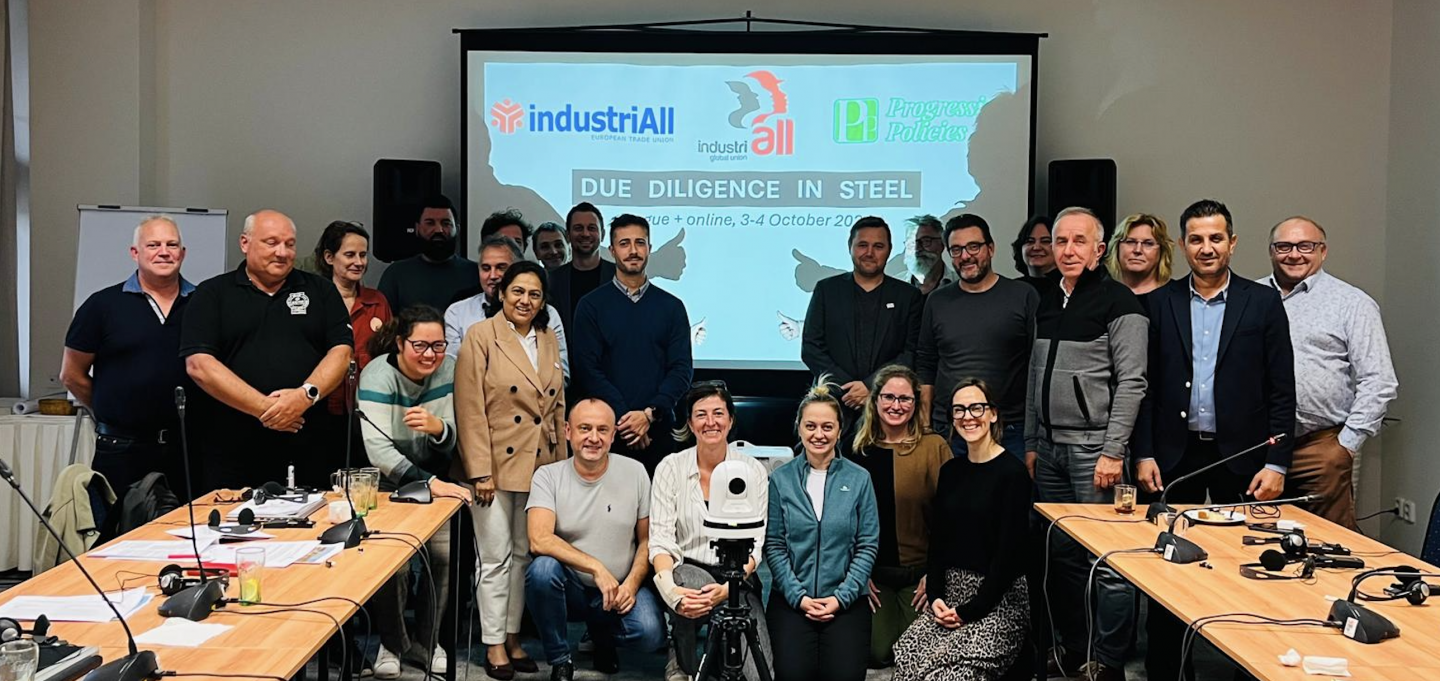4 October, 2024Trade unions are intensifying efforts to ensure that human rights due diligence (HRDD) frameworks lead to meaningful improvements in workers' conditions within the base metals sector. At a workshop held in Prague on 3-4 October, IndustriALL Global Union and industriAll Europe gathered union representatives from around the globe to address the industry's notorious risks to workers' rights and safety. Supported by the European Commission, the event focused on how unions can actively shape HRDD processes and hold companies accountable.
With new legal frameworks, like the European Union’s Corporate Sustainability Due Diligence Directive (CSDDD), coming into effect, multinationals will face increased pressure to address human rights abuses in their global supply chains. The base metals sector, which includes steel, aluminium, and other essential metals, is particularly prone to violations due to its complex supply chains, hazardous work environments, and exploitative practices in raw material extraction.
Participants at the workshop highlighted that HRDD is a powerful tool capable of transforming corporate approaches to these risks. The sector has been under increasing scrutiny, with many stakeholders demanding better health and safety protections for workers and stronger environmental safeguards for both employees and surrounding communities.
Aline Conchon, industriAll Europe head of company policy, emphasised that HRDD should be more than a box-ticking exercise for corporations.
“It must be about transforming the way companies operate by placing workers' rights at the forefront. This includes ensuring that the right to organise and negotiate collectively is protected throughout the supply chain.”
As the number of HRDD laws grows across Europe and beyond, trade unions are positioned to play a crucial role in ensuring these frameworks lead to real action. By participating in every stage of the HRDD process—from risk assessments to negotiating action plans—unions can prioritise workers' rights.
Patrick Correa, IndustriALL Global Union director for base metals, stressed the importance of union involvement:
“Without the full participation of trade unions, due diligence risks becoming an empty promise.”
As HRDD laws come into force, unions are determined to hold companies accountable, ensuring that human rights due diligence is not solely about protecting businesses from legal risks but also about safeguarding workers from exploitation and harm. This marks a significant step towards greater corporate responsibility and improved worker protection in the base metals sector and beyond.
Christina Olivier, IndustriALL Global Union assistant general secretary, said:
“Companies can no longer ignore their obligations to respect human rights in their operations. For unions, this is a unique opportunity to ensure that due diligence frameworks lead to real, tangible improvements for workers—especially in high-risk sectors like base metals.”
Discussions at the workshop also centred on the necessity for unions to monitor corporate compliance and ensure that any human rights commitments made by businesses are enforced, particularly in sectors where workers face the highest risks.
The workshop is part of a broader initiative led by IndustriALL Global Union and industriAll Europe to build union capacity in high-risk sectors, including textiles, extractive industries, and automotive suppliers. Over the next two years, similar events will equip union leaders with the tools needed to enforce HRDD in their workplaces. This initiative will culminate in a major conference in 2026, where union representatives will share strategies and recommendations with policymakers.
Judith Kirton-Darling, industriAll Europe general secretary, concluded:
“Trade unions have always been at the forefront of defending workers’ rights, and HRDD gives us a new, powerful tool to do so. It is up to us to ensure that due diligence frameworks are shaped by the workers they are meant to protect.”





